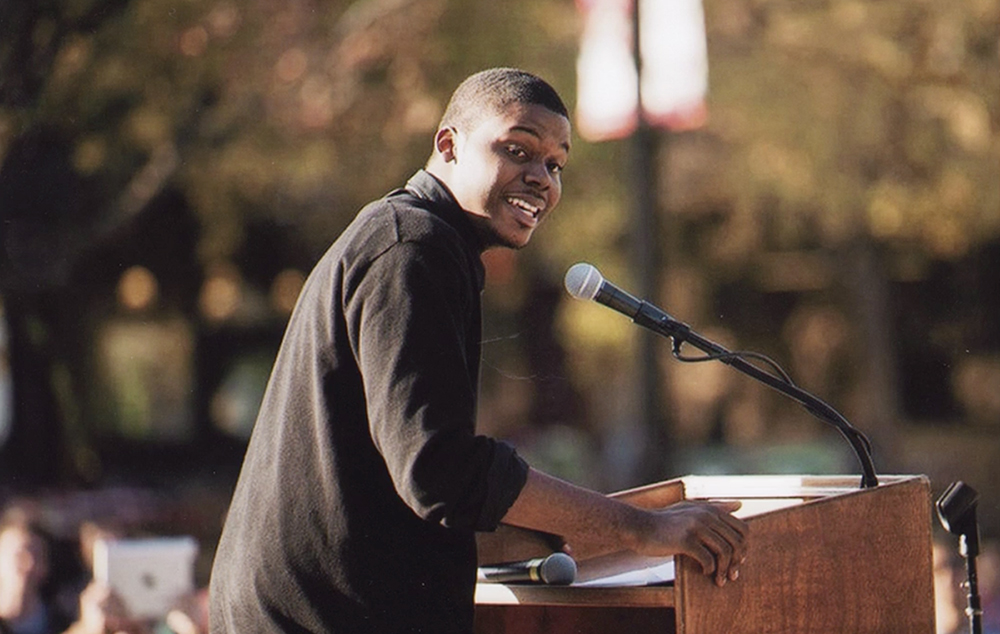A glimpse inside Michael Tubbs’ campaign headquarters to become the representative for Stockton’s Sixth District on the City Council resembles an ASB meeting more than a serious run for civic office, not only in the general age of those assembled on the team of the 22-year-old candidate but in their unsullied idealism, for better or worse. The novelty of Tubbs’ age is likely what attracted filmmaker Kevin Gordon to spend a year with Tubbs for “True Son,” a chronicle of the recent Stanford grad’s quest to serve his hometown, but Gordon finds an intriguing political case study in Stockton, where even the smallest of local political races threatens to weed out the best candidates because of the financial and systemic barriers to entry.
As “True Son” is given to emphasize over and over, Tubbs is exactly the type of person that should be running for office, passionate about doing good for his community and driven into the political fray the murder of his cousin steers him back to Stockton, notorious for having the highest homicide rate in the U.S. Yet despite clearly being smart, well-spoken and magnetic as a presence, he isn’t a natural politician, uneasy asking for donations and rarely telling people on the campaign trail he’s running for office after introducing himself, saying “It’s too much pageantry for me.” One interviewee in “True Son” posits that Stockton “is the future of America” in all the wrong ways, citing the erosion of the middle class that has left the town as a place of haves and have nots, but the film illuminates how it’s also indicative of a troubling present nationally where incumbent councilman Dale Fritchen has kept his seat largely because no one has marshaled the resources to challenge him.
“True Son” doesn’t offer much in the way of surprising story developments, adhering to an inspirational David vs. Goliath-esque narrative that follows Tubbs corral his extended family to canvas neighborhoods. (The reduction of Fritchen, a middle-aged white Republican, to two fleeting and unflattering appearances, makes him an ideal villain.) However, like the candidate, it puts the work in to win, showing all the small details that go into a campaign — the grind of going door-to-door for votes and putting together flyers and then paying for them. His candidacy – and by extension, the film – gets a boost from the arrival of Nicholas Hatten, a Democratic Central Committee chairman in the region who volunteers to become Tubbs’ campaign manager. Hatten makes it his mission “to find balance between Michael being a political leader and Michael being a candidate,” directing Tubbs towards the most politically beneficial opportunities and helping him raise the $100,000 needed to stay competitive in a race where he must continue sprinting just to stay in place.
To keep pace, “True Son” is energetic and consistently lively, though even at a short 72 minutes, it feels as if it might’ve been even more effective at a shorter length, with first-time director Gordon reusing some of the footage at the end of the film from its beginning with nothing new necessarily added with context. Still, Tubbs’ run for city council was well-worth documenting. While there’s never a question where the filmmakers’ sympathies lie, which may have prevented a more complex examination of why his candidacy seems sadly all too improbable in the current political state, “True Son” is there to capture why all hope shouldn’t be lost and thrives on the excitement of witnessing a new star being born.
“True Son” is now open in New York and will open in Los Angeles at the Music Hall 3 on November 7th.




